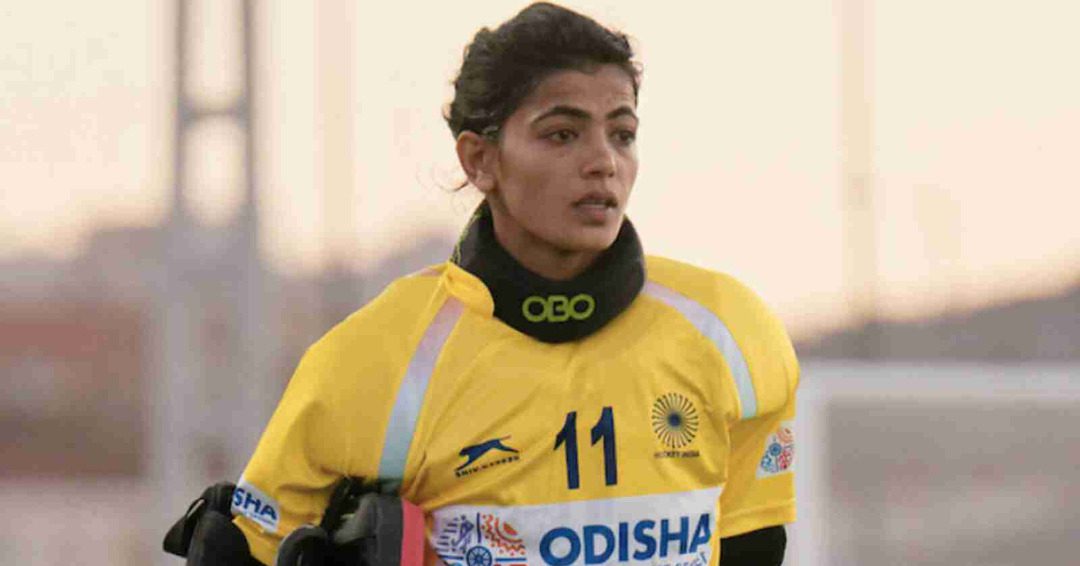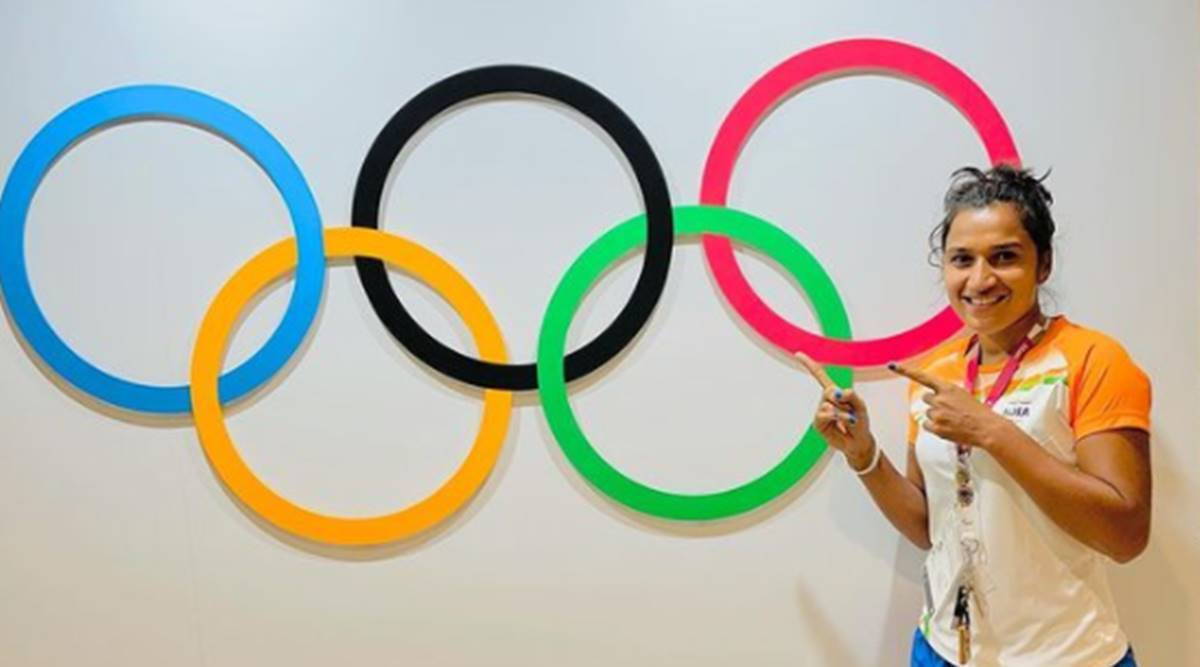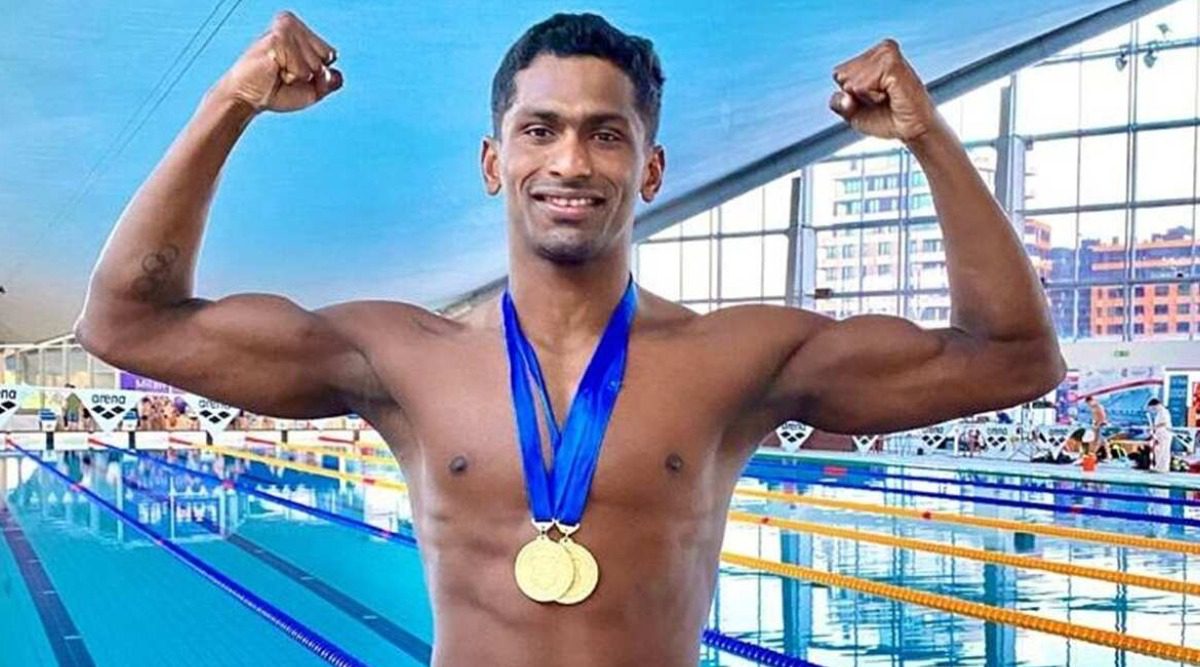“70 minute hain tumhare paas. Jao jaakar jee bhar kar khelo. Aage aane vaali zindagi mein kuch sahi ho ya na ho, ye 70 minute tumse koi nahi cheen sakta.” (You have 70 minutes, play your best. Even if nothing goes right in life after this, nobody can take away these 70 minutes from you.)
Who could possible forget this pep talk by coach Kabir Khan (Shah Rukh Khan) just minutes before his Indian women’s hockey team is up against Australia in the movie Chak De! India? Well, the plot was the same. India was competing with three-time champion Australia. But not on the silver screen, but at Tokyo Olympics 2020. Sometimes magic happens when reality overlaps cinema, and that’s what happened on August 2, 2021 when Indian women’s hockey team beat Australia and made a stunning entry into the semi-finals. In the middle of all of this was Savita Punia, the Arjuna award-winning goalkeeper who saved nine goals to help Team India create history.
Being the perfect wall between her victory and defeat, Punia brought glory to India with her stellar performance at the ongoing Olympics.
However, this journey to success hasn’t been an easy ride for this athlete from Haryana.
Radio commentary that led to hockey dream
Some 21 kilometres away from the city of Sirsa, Savita Punia was born in the dusty village of Jodhkan in Haryana to a pharmacist father and a homemaker mother. Like every other girl in her village, a young Punia divided her time between studies and household chores. But she did have one another interest — listening to hockey commentary on the radio. Thanks to her grandfather Ranjit Singh Punia and his love for the game, she was exposed to the sport at an early age.
But it wasn’t until she was 14 that she tried her luck at the selection. With no other sportsperson in her family, Punia found encouragement from her grandfather who pushed her to play hockey, and that was the beginning of her innings with the sport.
View this post on Instagram
Fueled by the desire to achieve something beyond what was the norm for women in her village, Punia started training under coach Sunder Singh Kharab at Maharaja Agrasain Girls Senior Secondary School in 2003. Though Punia was keen to be a forward or midfielder, Kharab insisted on grooming her as a goalkeeper because of her height and quick reflexes.
A bumpy ride
But it wasn’t a smooth beginning for Savita Punia. With only two kits available for the already-chosen goalkeepers at the nursery, Punia was asked to buy a new hockey kit which cost around ₹17,000. Coming from a humble background where her father’s monthly salary was ₹12,000, it burnt a hole in their pockets. But her father was determined to make his daughter a world-class player. However, Punia wasn’t pleased with his decision.
In a conversation with YourStory, she said, “It felt like a burden to me. I started to think that even if I returned the kit, the money might come back but my dad wouldn’t be satisfied. I also felt that I would never be able to make it that far. But once I started playing, I performed well in domestic tournaments. Whenever I would return home, I would be treated so well by dadaji; seeing him so happy really motivated me to take up the sport seriously.”
With her training in Sirsa, travelling 30 kilometres everyday with two massive hockey kits wasn’t easy for Punia. In fact, the tiresome commute almost led to her quitting the game. But it was her grandfather who motivated her to keep going.
“My journey wasn’t an easy one as hailing from Haryana. I used to travel 30 km multiple times each week from Jodhkan to Sirsa to sharpen my hockey abilities. Sometimes the bus conductor won’t let me in due to massive bags and toolkits, the other times, when some let me entered the bus they never helped me with bags & were always rude. So I thought of giving up but my main source of motivation and inspiration was my grandfather. He always wanted me to be the girl of change, to not be suppressed by societal norms and to be the ‘DHAAKAD’ girl even when the situation got intense,” she added.
Global Indian journey
Savita Punia made her debut in the national team in 2008 but had to wait three years to play her first game. In the 2013 Women’s Hockey Asia Cup, Punia made a stunning international debut by saving two crucial goals in the penalty shot, thus helping India win a bronze medal.
View this post on Instagram
“I remember when I had first played for India, dadaji heard that the news was in the newspaper, and at 67 years of age, he decided to learn to read. After a year or so, he learned reading and then made me sit with him and read the news out loud. It was a really great moment, and the biggest inspiration for me,” she added.
The very next year, Punia helped the Indian women’s hockey team clinch a bronze at the 2014 Asian Games in Incheon. The 31-year-old was also instrumental in helping Team India qualify for the 2016 Rio Olympics after a 36-year drought. But it was her stunning performance at the 2018 Asia Cup where she saved an exceptional goal against China that landed her the goalkeeper of the tournament award. This very goal got the team a place in the 2018 Women’s Hockey World Cup in London.
Many congratulation to the wall of Indian women’s hockey #savitapunia for the prestigious #Arjunaward .U totally deserve for this honour. M so proud to play with u since long time .looking so beautiful in #saree . While u have so beautiful teeth plz smile dear 😂😂😂 pic.twitter.com/iNPRhMYE4k
— Rani Rampal (@imranirampal) September 26, 2018
The Olympic glory – The Chak De moment
But it was Olympics 2020 that had Punia’s full attention. Despite the pandemic, she continued training for the biggest sporting spectacle. The girls in blue were ready to showcase the best of their skills on the field, and that’s exactly what they did at the quarter finals.
On August 2, when Punia along with Indian Women’s Hockey team stepped on the field against World No 3 and former gold medalists Australia in the quarter finals, all eyes were on the girls in blue. If Gurjit Kaur‘s stunning goal at the 22nd minute made Indians hopeful, Punia stood like a great wall and kept plugging in save after save to deny Australians any of the 9 goals they aimed for. Thus leading to the historic moment when they stormed into the semi-finals of the Olympics – for the first time ever.
“The coach told us that it was a ‘Do or Die’ situation, we only have 60 minutes and this is either our first match or the last,” said Punia.
It’s not every day that history is created, but if you are a part of that golden moment, the feeling is inexplicable. And that’s exactly what happened with Punia when she saved 9 goals. The Vice-Captain of Indian Women’s Hockey Team is truly an inspiration.
Editor’s Take
Representing your country at one of the biggest sporting spectacles is an honor for any athlete. Savita Punia’s journey is a true celebration of passion and unshakable determination. The 31-year-old, who fought against all odds and challenges, is a textbook example of courage and grit.
Also Read: Rani Rampal: From battling poverty to leading the Indian women’s hockey team to script history
Also Read: Rohan Bopanna makes history as oldest Grand Slam Champion


